Jul 20, 2020 | wedding planning
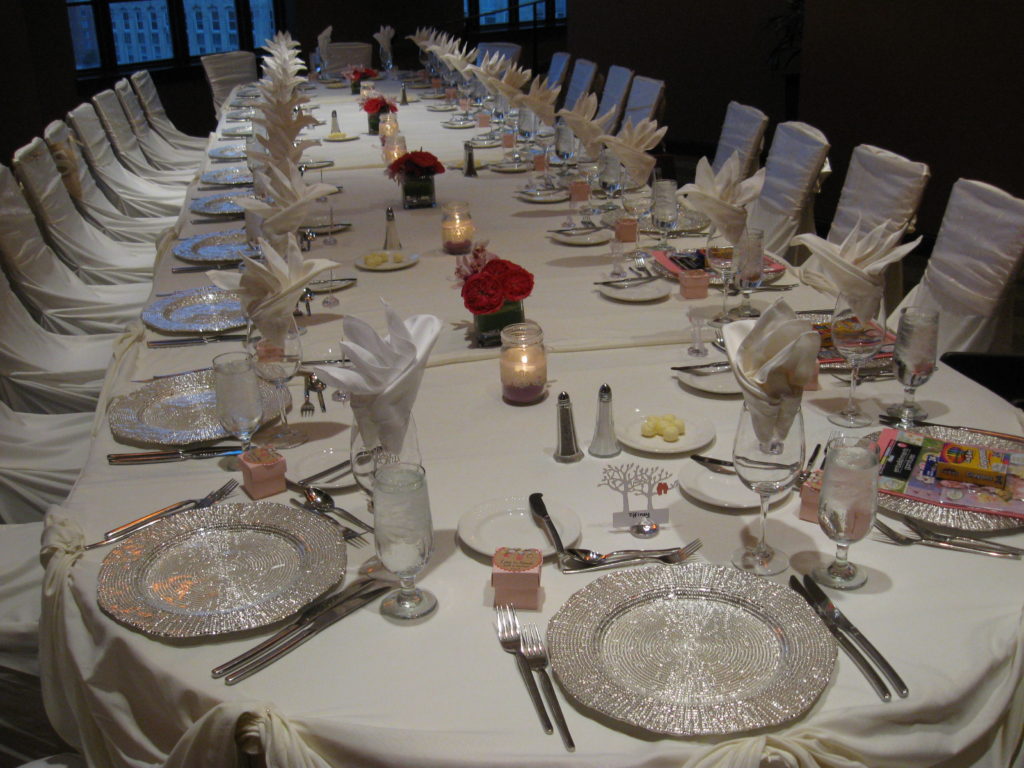
This table has insufficient distance between the guests, but it’s about as large a crowd as you can count on right now.
My last post was all the reasons why I recommend against having a wedding celebration right now. I’ve even racked up a few new reasons since then. But I realize that not everyone is going to take my advice. If you are going ahead with your planning, here are some things I think you should think about.
As I said last time, if you’re planning a wedding under the current conditions, it’s going to require some extra work. But it’s not entirely impossible. There are things you can do if you are serious about keeping everyone safe at your pandemic wedding. If you’re the host of the party, it is up to you to set the expectations for the behavior of your guests. You can communicate your expectations to your guests in your invitations, on your wedding website, and with follow-up communications to everyone.
It doesn’t have to be deadly serious, either. Keep it light by reminding everyone that the theme of your wedding is Safety First or Love at a Distance. You can probably come up with something a lot cuter than I can right now. Just be sure that whatever you say, you repeat it a lot so that everyone knows that you’re in earnest and they can’t laugh it off. You also have to be the first ones to practice what you preach, no exceptions. (Does this sound hard? It is.)
If you want your guests to wear masks, then supply them with masks, and be prepared to wear them, yourselves. Put your names and wedding date on them. Get them to match your décor. Give out prizes for dedicated mask wearers. Make it easy and fun for your guests to wear masks.
You can also designate someone to be the mask-and-social-distancing monitor. They can make regular announcements to remind everyone of the rules. People are bound to forget to stay distant from people they haven’t seen in a long time. Make sure there is someone there to remind them to back away. It’s not a disaster if people are close to each other for a few minutes, but if they are not reminded, they will forget and stay there for longer than is safe. Again, make sure to keep it light: Give your monitor a sparkly magic wand and have them remind people about the wedding’s theme. Or hand out stickers that say, “I can see your nose!” Once again, you can probably come up with something much better!
The biggest thing to think about as you plan is going to be (oddly enough) the arrangement of the furniture. The locations of tables and chairs is going to be the most important thing that will keep your guests at a safe distance from each other. The ground plan is sometimes created by your caterer, sometimes by the venue, and sometimes by your planner. You’ll have to make sure that all three of those professionals are on the same page regarding safety. If you don’t see furniture spread out in a safe and sensible fashion on the first draft of the ground plan, don’t hesitate to ask for revisions.
Before the wedding, be sure to ask your guests, in all seriousness, to stay home if they are ill, if they have been exposed to someone who is ill, or if they have any question at all about the wisdom of their attendance. Naturally, people will want to be there and they don’t want to disappoint you. It will be up to you to let them know that you would rather they stay home if it is safer. Also, keep in mind that it could be someone very close to you who needs to stay home. Make up your mind now to be prepared for that disappointment. In the long run, it’s just not worth it.
You also might have to be prepared for some of your guests to decline to attend if they don’t believe it is safe for them. Please be understanding and don’t pressure anyone to be there if they believe it would be a bad idea for them.
The other really hard thing to be prepared for is that between now and the day of your wedding, things are very likely to change. Just today, the mayor of Chicago announced some new restrictions on various businesses. So far, it doesn’t affect weddings much (except that make-up services are no longer permitted), but at any time the mayor or the governor could change the rules. You might be planning for 50 guests only to find out that there is a maximum limit of ten guests by the time you arrive at your date.
It’s not all bad news. I recently learned about a very fun option that a local DJ company is providing: They suggest that you have a small wedding ceremony with your closest family and a few friends, have dinner with them, end the in-person celebration there, and then carry on with a virtual dance party that they can provide for all your friends and relations. This seems like a safe, sensible, and fun option.
I haven’t changed my mind about the wisdom of having parties right now, but if you want to go ahead, please consider all these things as you plan. It is definitely extra work to try to have a safe celebration right now.
Jul 9, 2020 | wedding planning
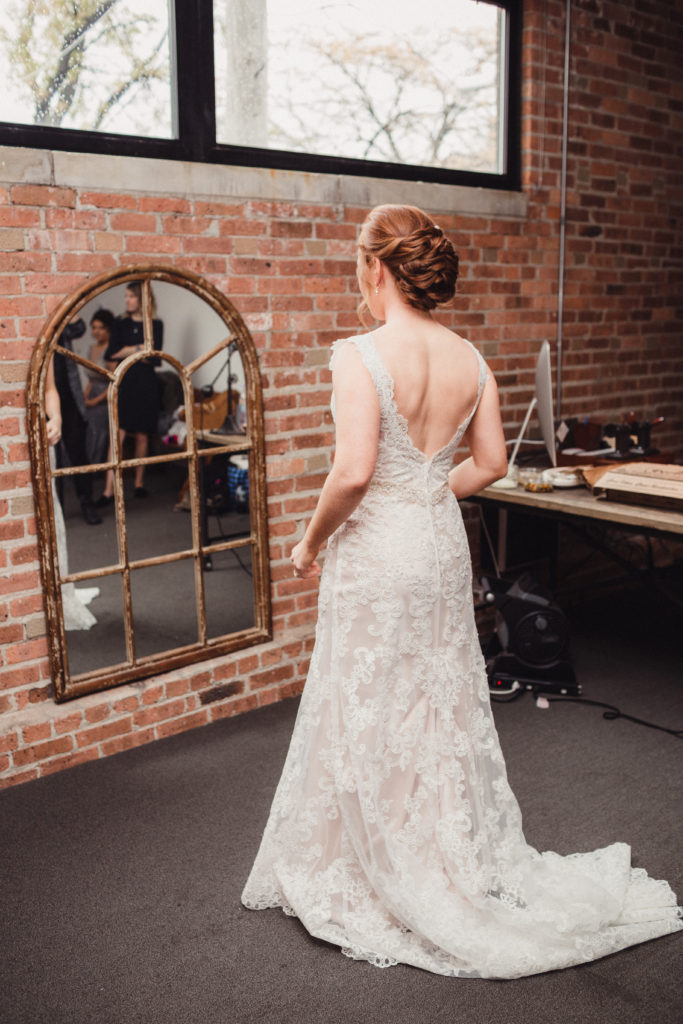
Photo by The Still Life Photography
There are definitely legitimate reasons for people to need or want to get married right now, pandemic or no pandemic. And I can’t make that decision for you, either now or in the foreseeable future. All I can do is share with you the pitfalls of pandemic weddings that I am hearing about—and there are quite a few!!
There has been a certain lack of clarity within the wedding industry in Illinois about what is permitted and what is not. Not that the rules aren’t published: They are available right now. But there is a lot of questionable information also being spread around. Here are the basic rules that affect you, your guests, and your vendors:
Capacity restrictions: Venues can host 50 people OR 50% of room capacity—whichever one is the LOWER number. So, if your venue can hold 300 people, then the maximum number of guests is 50. If your venue can hold 50 people, then the maximum guest count is 25. There are no circumstances under which you can have more than 50 people gathering indoors right now. On the bright side, the capacity number does not include staff, so you don’t have to count servers, bartenders, officiant, photographer, videographer, or planner in your maximum number.
Guest behavior: Guests are required to wear masks unless they are actively eating a meal. Guests who have symptoms of illness should stay home. Everyone should stay at least six feet away from anyone they don’t live with, at all times.
Venue considerations: Signage with the rules for guests should be displayed prominently. People seated at tables still need to be six feet from anyone they don’t live with. You can’t have a dance floor. Entrances, exits, restrooms, coat rooms, and similar congested places need to be considered when finding ways to maintain distance among the guests.
There are also other guidelines in place that govern how food service is handled (especially buffets) and best practices for live performance.
I have to be honest with you: When I look at all the restrictions in place, I think that any event that follows all the rules is not going to resemble our idea of what a wedding should be. And that’s exactly where the list of problems starts: People are desperate for some kind of normal social life and for joyous occasions, even if that means risking their health and the health of everyone around them.
I’ve been hearing the stories from my fellow wedding vendors about the weddings they have worked at in the last few weeks since it became possible again, and I am not encouraged by what I am hearing. Between the aforementioned desperation and any amount of alcohol, it seems that most people stop taking mask-wearing and distancing seriously in no time at all. And this is one of the biggest hurdles to having a safe wedding in these times: People are not necessarily going to follow the rules that are in place for their protection.
There are other pitfalls on the road to your pandemic wedding. One problem I’ve been hearing a lot about is that venues sometimes claim that you can have more than 50 guests. They generally try to justify it by claiming that the rule is 50% capacity. Venues that are also caterers want to have a larger capacity because that brings in more income for them. Unfortunately, that’s not what the rule says. If you have any questions about the capacity claim your venue is making, I recommend calling the local health department where the venue is located and asking them if the representations being made by the venue are correct. The health department is the final arbiter on this subject and they will be sure to set everyone straight.
Also, for weddings within the city of Chicago, there is now a 14-day quarantine order in place for people coming from locations where virus cases are increasing. If you have guests who live in Alabama, Arkansas, Arizona, California, Florida, Georgia, Idaho, Louisiana, Mississippi, North Carolina, Nevada, South Carolina, Tennessee, Texas, or Utah (subject to change as events play out), they will need to stay indoors in one location for 14 days upon arrival in Chicago without contact with other people. So, if you want those people to be at your wedding, they will need to arrive two weeks before any festivities begin and not go anywhere once they get here.
So, can you have a wedding in these times? Yes, you can. Is it easy to do? No: It takes a lot of extra work. Is it going to be any fun? The jury is still out on this one. Should you have a 50-guest wedding right now? On balance, I’m going to say that it might not be a good idea, considering how much extra risk and work are involved.
I’ll leave you with this sobering thought: If anyone who is at your wedding (guest, vendor, or you and your spouse) tests positive for the virus within two weeks, everyone who was there is going to get a call from the health department telling them to quarantine for 14 days and get tested for the virus. At best, that is an inconvenience for 60 or so people. At worst, it could mean that many of your closest friends and family members could become ill and some could die. Is that a risk you want to run so that you can have a party? Only you can decide.
But if you were to ask my opinion, this is what I would say: If you want or need to get married right now, then get a marriage license, find an officiant, and have your closest family there (preferably outdoors) with everyone wearing masks and keeping a distance. Don’t have a party. Save the celebration for the happy future when we can once again crowd the dance floor, share a meal, and hug our friends without worrying. That day will come, and it will be worth celebrating.
Jun 19, 2020 | wedding planning
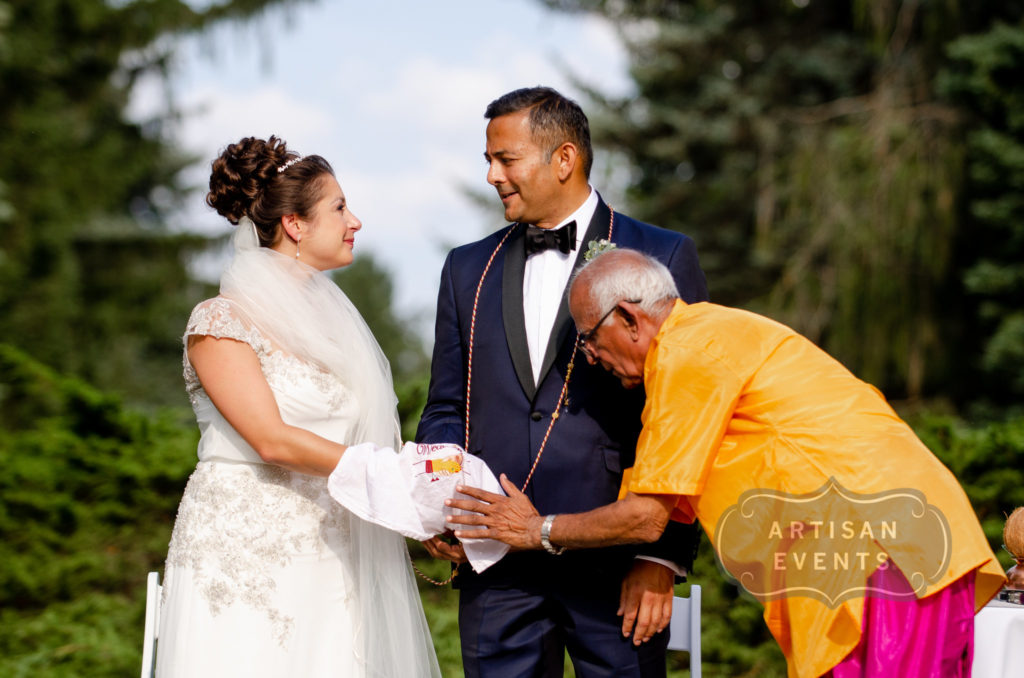
Tiny weddings mean it’s just you and your officiant (and a handful of guests). Photo courtesy of Artisan Events.
Let me preface this article by emphasizing that I am not a public health expert. Nor am I am epidemiologist or an infectious diseases professional. (If I were, I probably wouldn’t have time to write this right now.) I am a reasonably well-informed human with decent research skills and reasoning ability, and with strong opinions. The following is based on those last three qualities.
At least here in Illinois, we’re still a long way from being able to have large weddings with crowded dance floors. I wish I knew when we’d be back to having fun, but my crystal ball is acting finicky these days. So, let’s talk about what is possible now and what is going to be possible in the near future. Here are a few questions that I have come across.
Can you get married right now in Illinois? Since late May/early June (depending on whether you’re in the city or anywhere else in the state), weddings have been possible again. Hooray! There can only be ten people in attendance, though, and that includes your officiant, your photographer, your photographer’s assistant, your planner, and the two of you. In other words, if you want to have guests at your wedding, you will have to do some thinking about which professionals you also want to attend. Here’s how I would do it: I would have just the officiant and one photographer. That would mean you could have six guests, for a total of ten people. And, no, you can’t have six guests at one time and another six guests when they leave.
And don’t forget that everyone needs to wear masks and that people from separate households need to stand at least six feet apart. That part doesn’t change, even for a wedding. If I understand the rules correctly, that also means that a shared meal will be out of the question. You can’t eat and drink with a face mask on! And those masks will have to stay on. So, while you may be able to get married, having a reception of any kind is extremely unlikely. Drinking and dancing will have to wait. But at least there are safe (or safer) ways to hug people!
It’s also not entirely clear that it’s possible to get a marriage license everywhere. In Cook County, it looks as if there is now an online application for a license. Other counties seem to have different requirements, so be sure to check whether you can get a license in the county you’re getting married in.
When will “real” weddings start again? And by “real,” I mean crowds, drinking, dancing, and unlimited fun. This is the million-dollar question. Phase 4 of the state’s re-opening plan is currently on track to begin June 26. Assuming that goes forward, gatherings of up to 50 people will be permitted (including all professionals on site), but “face coverings and social distancing [will be] the norm.”
Phase 2 and Phase 3 look like they are lasting for 28 days each. I’m a little skeptical, though, that Phase 4 will only last for that long. I don’t think we are only two months away from a total return to normal. I could be wrong, but if there isn’t an effective treatment or no new cases for an extended period of time, I don’t believe we’ll be back to normal. (I’m not even thinking about a vaccine at this point. It’s still too early.)
Are outdoor weddings safer than indoor weddings? I have not seen anything definitive on the answer to this question, but from what I am reading, I would give a tentative and qualified yes to it. Please keep in mind that just because you are outdoors does not mean you can relax any of the other rules!! But since good ventilation seems to be one of the keys to keeping the virus from spreading, outdoors is often a better bet than indoors. Of course, that means you have to deal with the weather, but your planner knows a few tent companies who can help you out.
Do you have other questions? You can always contact me, and we can talk!
Apr 6, 2020 | wedding planning
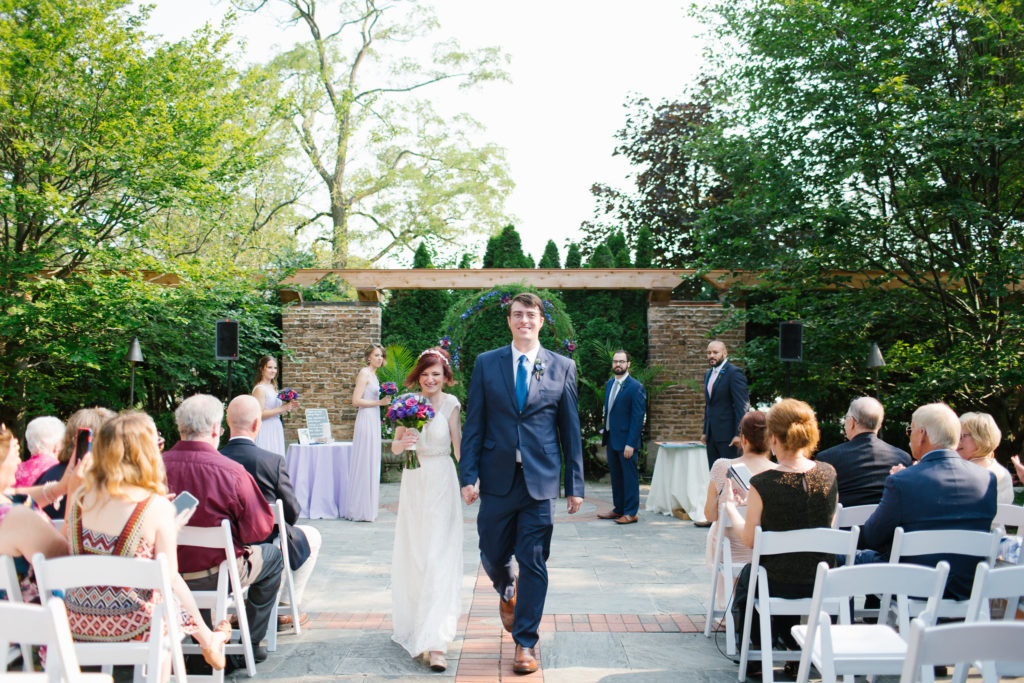
We may be looking at a lot of small, outdoor weddings like this one for the foreseeable future. Photo by Geneva Boyett Photography.
We’re in a time of tremendous uncertainty right now, and even the most perspicacious among us are having a hard time seeing the way forward. Since everything in the event planning world is on hold right now, I have spent a bit more time than usual going down internet rabbit holes to dig out the best data I can find. This is where my geeky side comes out. Yep, I’m your geeky wedding planner, and I’m proud of it! Here is some of what I have found.
If you want to see graphs based on solid data about the short-term projections for how things are likely to go, this website has the most detailed information I have found yet. You can look at the country as a whole or at your state only. There are some caveats about this information, however!
First, please don’t look at this and say to yourself, “Oh, this is all going to be over by June.” This is a short-term projection only and does not give any information about the next year or so, which is when things begin to get interesting. (More on that in a bit.)
Second, it is only a projection based on the best data available at the moment. There are a lot of unknowns in how this is going to unfold, and even the best projection may end up being erroneous in some way.
So, what happens after the first of June? Well, first of all this virus is not going to just go away. The first thing that may happen (at some point between the end of April and the end of May, depending on your state) is that stores may open again, many people may go back to work, and there may be some semblance of normal life returning.
I fully expect, however, that restrictions on gatherings over a certain size (10 people? 50 people? 100? who knows??) may remain in place for some time, at least in some locations. Since the virus will still be circulating in society and since only a small percentage of people will have developed immunity (assuming that people will develop immunity), we will still likely have to avoid situations where a lot of people could become infected. So, it may be possible to plan a wedding for this summer, but it is also possible that 250 guest lists will be out of the question, possibly for another year or so.
In a brighter scenario, in the next few months, the health care system could have more equipment and be better prepared for another onslaught. If that is the case, perhaps social gatherings (maybe with size restrictions) might be permitted again. Of course, then you still have to think about the health and well-being of your guests: Would it be wise to hold a large gathering if you think it might result in your guests being infected? Will you have to ask all your guests to wear face masks? Can you hold all the festivities outdoors, where it may (or may not) be safer to do so? Those are questions you may have to ask yourself if you want to get married this year.
There is also the question of airplane travel if you are inviting people from around the country or overseas. Right now (judging by how quiet the skies are over Chicago), airlines have cut back their flight schedules deeply. Will there be flights available from everywhere to your wedding destination? Will it be wise for your guests to travel?
Also, please keep in mind that, since in the US we lack any central planning or management of this crisis, the exact details of what will happen vary a lot by location. For an extremely detailed read about the various ways this might affect our future (and lot of other stuff, as well), this article has some great information and charts. The short version is that if your state closed things down early and completely, you are in a better position for recovery, both socially and economically. The states that waited the longest and have done the least will probably take the longest to recover.
Finally, a most important thing to consider, as we look forward: It is very likely that there will be another wave of this illness in the fall, perhaps starting as early as mid-September after schools open again (assuming schools open again in the fall on schedule). It’s unlikely there will be a vaccine until next spring at the earliest, so I think we have to assume that next winter there will be many more infections, and there may have to be more governmental actions to curb the viral spread again. So, if your best option for a wedding is in 2020, late July, August, and early September are your best bets. Those are already very popular dates, so consider Fridays, Sundays, mornings, and other off times if you want to be sure you can find a location and vendors you want. And plan for a smaller guest list. If you are able to postpone your wedding until 2021, you may face less uncertainty.
I wish I had better news for everyone. But I prefer to look the facts in the face and make rational decisions based on the best information available. It doesn’t make me popular, but it does mean I get to make good judgment calls a lot of the time. So, I hope you find this information valuable as you look forward. Remember, this, too, shall pass. If all goes well, we will be able to look forward to many happy occasions in 2021.
I thank Rebecca “Boo” Cardozo-Pfeiffer, JD, MPH, MOM, for her invaluable assistance in writing this article.
Mar 23, 2020 | wedding planning
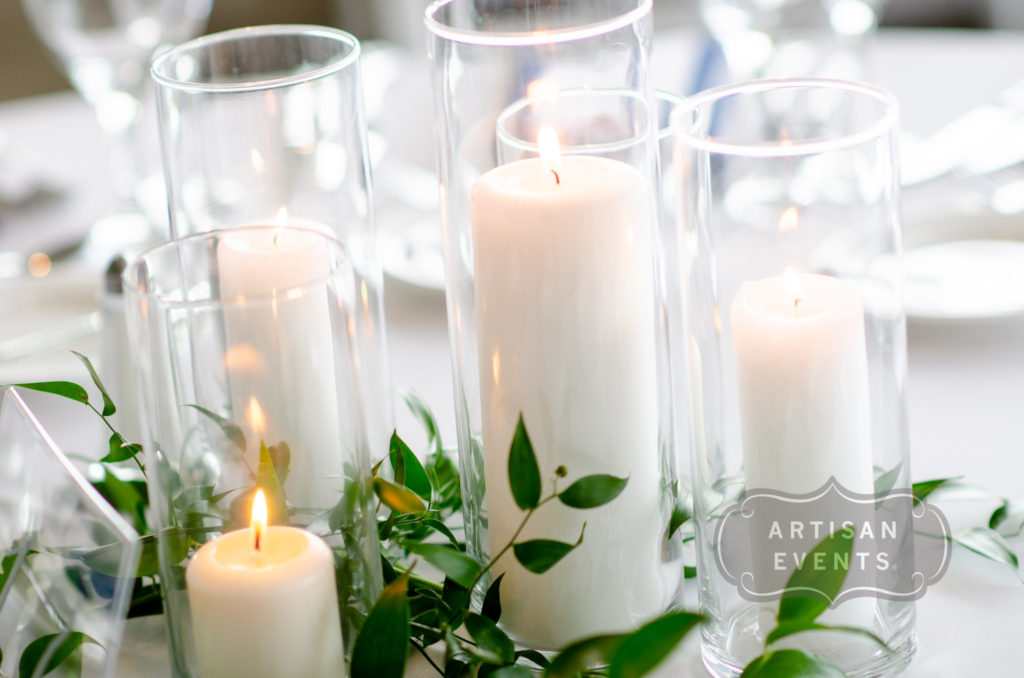
Photo courtesy of Artisan Events.
It’s heartbreaking how many people are having to reschedule their weddings and other events. (I understand that some families have even had to hold funerals via video conference.)
Planning a wedding is hard enough. Moving it to a new date is a whole new level of headache. There are so many things to consider: Are all your vendors going to be available? What dates are left? What day of the week should you schedule for? What months are likely to be the best ones this year? (Answer to that last one: No one knows. We’re all guessing based on whatever information we can find.)
If you find yourself in this situation and you don’t have a planner to guide you through the process, I want you to know that you are not alone. If you are willing to spend a couple hundred dollars (depending on how complex your wedding is), this is definitely a service I can offer you as an hourly consultation project.
I estimate that most weddings would take me less than 5 hours (some considerably less) to reschedule, including talking with you about your needs and priorities, reviewing your vendor list, contacting all your vendors, and helping you to choose a final date. Consultation is $50 per hour, so this would literally cost you a tiny fraction of your budget.
And if you work with me, you are eligible for my special discount: If you hire me for a consultation (two-hour minimum) between now and July 1 and then hire me for planning or coordinating for your 2021 wedding or for coordinating your 2020 wedding, I’ll give you a $50 discount off of planning/coordinating services.
The other thing to know is that you should not wait to reschedule if you still want to get married this year. A lot of people are in the same situation as you are, and dates are going to fill up. So, whether you are working on your own or with a planner, be sure to get on this soon!
Mar 16, 2020 | wedding planning
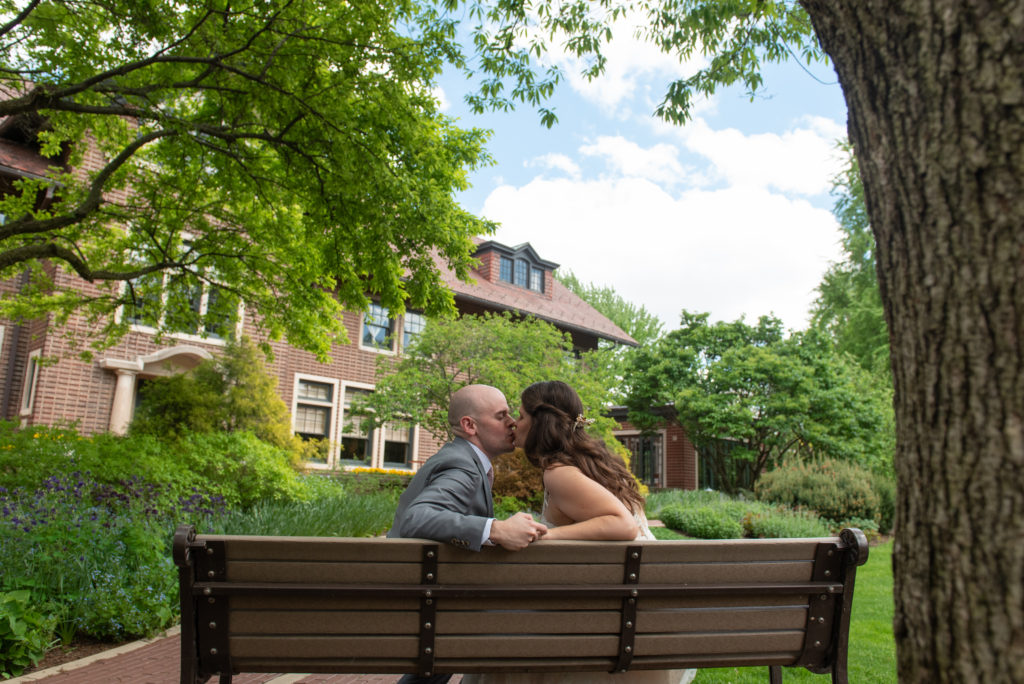
Dreaming about summer 2021. Photo by Chris Ocken
Copyright 2019 – https://www.ockenphotography.com/
A lot of people are looking at some time at home, either working from home or not working at all. Either way, you might have some extra time on your hands. And if you’re looking at a 2021 wedding, that might be some good news for you. (And we could all use a little good news right now!)
If you’re planning to get married next year and you are looking for things to fill your days, you can do some wedding planning right now. No, I don’t expect you’re going to rush out and visit venues this week, but there are things you can do.
If you haven’t done this yet, you can make a list of wedding planning tasks, with notes on when you should be working on each item. There are hundreds of these types of list available on the internet. Find one you like, and adapt it to your needs. (Spread sheets are going to be your friend in this project.) Set up a shared folder for planning purposes so both of you have access to it–and you can share it with your planner or coordinator if you hire one.
Also, work on your wedding budget. This can take some research, but if you have the time, now would be a great time to start doing that work and putting it together.
Have you started to research venues yet? Or caterers? This would be a great time to compile a list of all types of vendors, read reviews, compare costs and amenities, and get in touch with various vendors if you have specific questions. Find out which venues are available on your preferred date(s), and start to narrow down your list so you can visit a few when the time comes.
Finally, a shameless plug: If you want help with any of these tasks, you can hire a planner (such as, say, me!) for a consultation. I’m available by phone or Skype for planning meetings to get you off on the right foot. A two-hour planning meeting will cost you $100. (You can, as always, hire me for full planning, as well. I suggest planning for 2021 at this point.)
I also have a little bonus discount for you: If you hire me for a consultation (two-hour minimum) between now and July 1 and then hire me for planning or coordinating for your 2021 wedding, I’ll give you a $50 discount off of planning/coordinating services. How’s that for a little good news?
Mar 12, 2020 | wedding planning
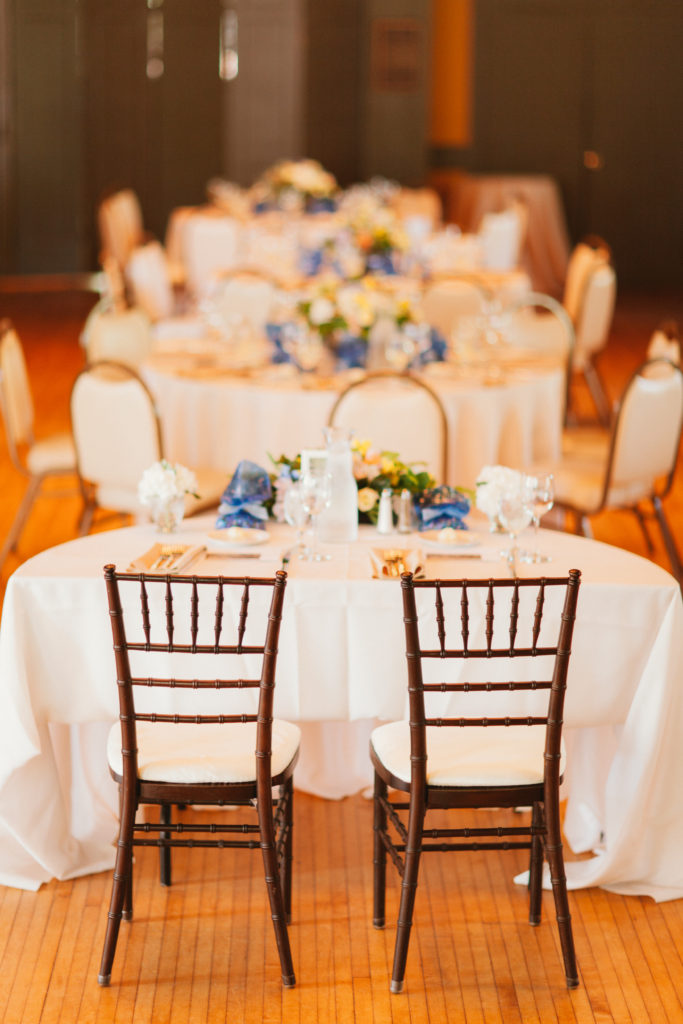
Photo by Studio Finch Photography, www.studiofinch.com
I’m a planner. I like to plan things and then stick to those plans. I am, however, also a realistic planner, so I know that plans change, and sometimes you just have to roll with the punches. This week is one of those times–in a very big way.
So, let’s say you have been planning a wedding in the US for sometime this spring or early summer. What do you need to be thinking of right now? I’ve been keeping tabs on the news, but I have to caution you that this is only my informed opinion and things may not play out the way I see them right now.
It’s anyone’s guess how long this disease will continue to spread. The best-case scenario I’ve seen is that it could be contained by sometime in the summer–if governments act now. No one wants to predict a worst-case scenario, but it would have to be sometime later than this summer. In any case, if you’re planning a wedding between now and July, you may have to be prepared for some changes.
For one thing, some locations (states, cities, metropolitan areas) have banned large gatherings, both public and private. In Chicago as of today, gatherings of over 1,000 people are prohibited for 30 days. Gatherings of over 250 people are strongly discouraged. If you have a large guest list, your wedding could fall in that second category, and you may have to postpone. If you haven’t sent out invitations yet, think seriously about downsizing your guest list. The smaller the gathering, the less risky it is.
But the other thing to think about is who is on your guest list. It’s generally agreed that older people are more at risk from the virus. As much as you want your grandparents and others of their generation at your wedding, you may need to have some serious conversations with them and let them know that if they need to keep themselves safe, you will understand and you won’t insist that they join you. There may be other people who want to be with you but who need to stay away to protect themselves. Be understanding with them. It’s better to have your dear ones safe than at your wedding.
If you have the time and the means to do so, consider setting up live streaming, at least of your ceremony, so that people who aren’t able to be there with you can participate. It’s not the same as being in the same room, but it is better than nothing.
The other thing you can do is to communicate with all of your guests and tell them to please stay home if they are not well. If you let them know that you would rather they not attend if they are sick, I hope they will agree.
And then there’s the very worst case scenario: Having to postpone or cancel your wedding. Pretty much everyone in the wedding industry is aware that we are going to have to make some accommodations for our clients. Talk to your vendors and ask about their policies for postponing your wedding if it becomes necessary to do so. At least in Chicago, most vendors are being flexible and willing to rebook for a later date at no extra cost. (Some are charging rebooking fees.) Ask about specific policies and make sure they are spelled out in your contracts if you haven’t signed them yet.
And my last bit of advice? Wash your hands frequently with soap and hot water for at least 20 seconds. Don’t touch your face. Do get plenty of rest and exercise, eat as healthy a diet as you can manage, and do whatever you need to do to keep your stress level under control. It’s always better to be prepared, be careful with your health, and change your plans than to be sick.
Feb 17, 2020 | wedding planning
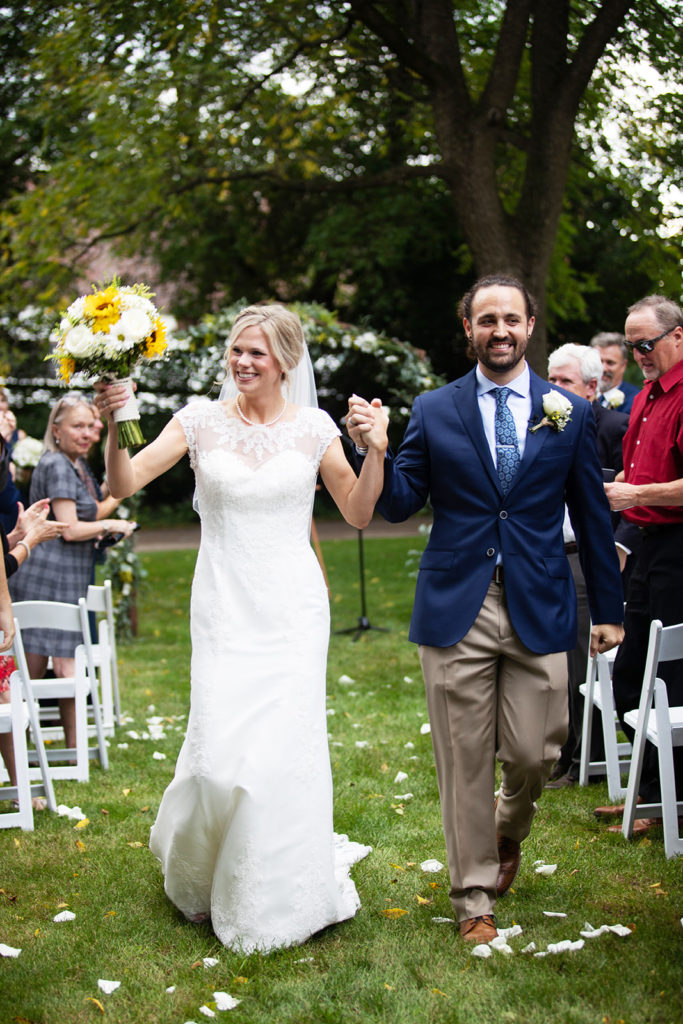
Labor Day weekend is a great time to get married, like this fall country wedding. Photo courtesy of kellyjophoto.com.
Here’s something I get asked all the time: Is it a good idea to schedule a wedding for a holiday weekend?
There are lots of Monday holidays in this country, resulting in 3-day weekends for a lot of people, many of whom may be the very ones you want to have at your wedding. If a lot of your guests are going to be coming from out of town, then sometimes scheduling the event for a holiday weekend is a great idea, because it allows people to visit for a little longer and makes it easier for them to actually be there with you.
On the other hand, airfares may be higher on high travel days, which might be a problem for some people. And there may be those among your guests who already have plans for a long weekend. Neither of these has to be a deal-breaker, but if you are planning a wedding for a holiday weekend, it’s a good idea to give your guests as much advance notice as possible.
Also, you may be thinking that you can save some money by scheduling the wedding for the Sunday of a holiday weekend. Sunday rates at venues are typically lower than Saturday rates, but–sorry!–the venues are already ahead of you on this one. Most of them charge the same for Saturday and Sunday of a holiday weekend.
But if you do decide on a holiday weekend, Sunday is often a good choice for the convenience of your out-of-town guests. They can travel on Saturday and Monday, if they can’t get time away during the week.
On the whole, I tend to say that holiday weekends are a good choice, especially if you have guests coming from far away. They are often popular times, though, so if that’s the direction you are going, be sure to book your venue and other vendors early.
Feb 10, 2020 | About me, wedding planning
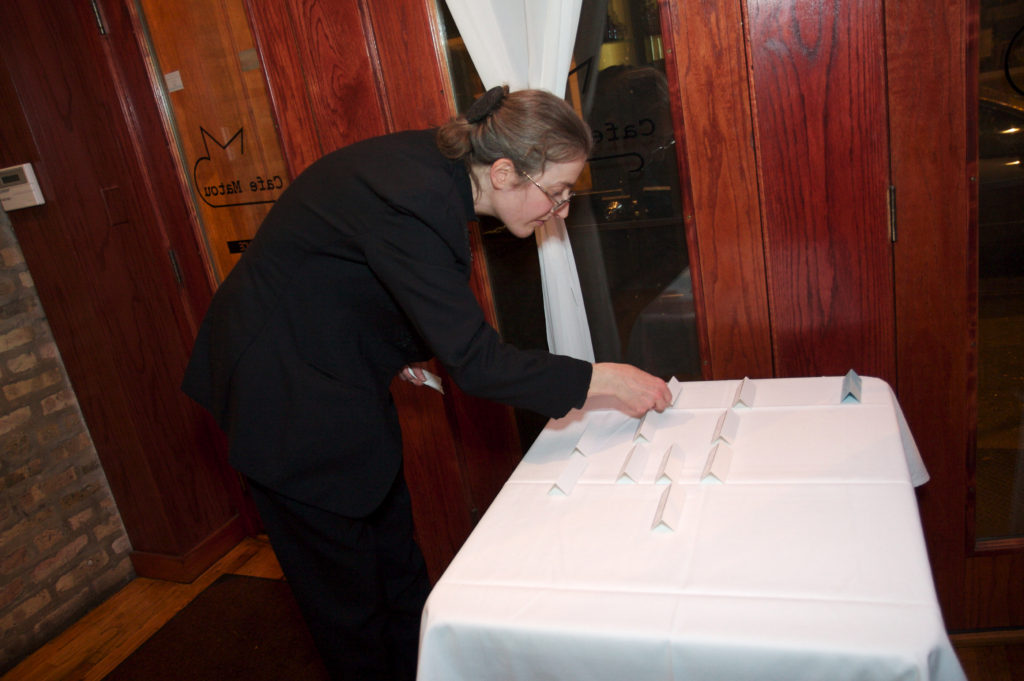
It’s not a new photo, but my attitude hasn’t changed: I’m being calm here. Photo courtesy of Artisan Events, Inc.
Here’s a funny story from last year’s wedding season. I was introduced to the brother of one of the brides before the ceremony began. I had been doing my thing for a couple of hours already, and everything was in place when I had the chance to stop and meet him. We shook hands, and when he found out what my role was he said, “You’re the planner?? But you’re so calm!”
I’m not entirely sure how he thought I should behave. Maybe there’s a stereotype of a wedding planner who runs around chaotically looking flustered. (I’ve never run into one who behaves that way in real life.) But he certainly said it in an approving way, which was quite flattering.
So, I said to him, “Well, yes, I am calm. If I’m not calm, then no one else is going to be calm, either. If I’m running around in a tizzy, everyone else is going to be feeling unsettled, too.” He nodded and agreed, although it was clear he hadn’t thought of it that way before.
I really do taking being calm seriously when I’m on site for a wedding. There are a lot of emotions packed into a wedding day, and people can be on edge. Someone has to be the anchor and the ground wire for all of that, and that’s what I try to be. (Professional officiants are also really, really good at this.)
And there are a lot of moving parts that sometimes people worry about. As one of my clients said one time, “We have outsourced all our worrying to Lisa.” I loved that! Yes, you can outsource your worrying to me. I won’t worry; I’ll just take care of stuff for you so no one has to worry. That’s my job. And I’ll be very, very calm, while I’m doing it, too.
Jan 27, 2020 | wedding planning
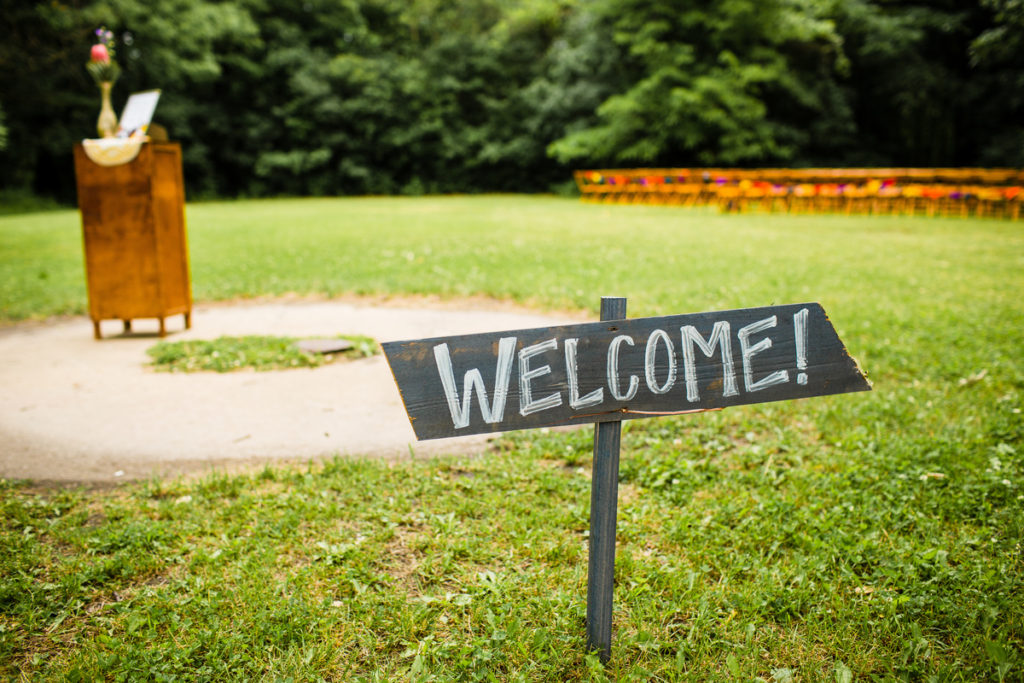
When you’re getting married in the Forest Preserve, you definitely have to think about insects. Photo by Allison Williams Photography.
Let’s say you’re planning your dream eco-friendly wedding, and you want to have it outdoors. At some point in the process you are going to realize that, if it’s summertime, you are going to be inviting all the local mosquitoes to the buffet–of your guests! No one wants to expose their guests to a zillion mosquito bites (much less ticks), but if you really want your event to be environmentally friendly, do you want to spray insecticide? It’s a dilemma. Fortunately, there are some things you can do that are less toxic and less destructive than calling the local bug spraying service or dousing the place in a toxic yard spray.
The first thing you can do is to warn your guests that there will likely be insects, and that if they want to avoid being bitten, they should remember to use their own repellent. The next thing–which is more hospitable–is to provide insect repellent and a place (away from the food, please!) where people can use it. If you want to provide non-toxic and effective repellents to your guests, try some of the products that contain oil of lemon eucalyptus (different from lemon eucalyptus oil) or picardin. (I learned a lot about these products from reading a Consumer Reports article on the subject. WebMD also has some useful information.)
Beyond personal repellents, there are other things you can do. If you have access to electricity, you can have large fans blowing in your guest area. Mosquitoes (but not ticks) are generally deterred by strong air currents. Most tent rental companies will also rent fans and the generators to run them. (Unfortunately, clean energy generators are not a big business for weddings and smaller events yet, but it may be possible if you have the time and money to devote to making it happen.)
There are also non-toxic products you can spread on the ground to repel mosquitoes, like these granules from Bonide. This product gets good online reviews, but I have not seen any scientific articles reviewing its effectiveness. My guess is that it probably works for a while, but may need to be re-applied periodically. It also is not marketed to repel ticks, so personal insect repellents are still probably your best bet if you know they are in the area.
As a last resort, you can use some of the insecticides (permethrin and pyrethrin products) that are approved for organic farm use and sold for general consumer use. They are still toxic but are less destructive to beneficial insects when they are sprayed after sunset than some other options. They are also human neurotoxins, so if you are concerned about that, they may not be an option.
While insects are a nuisance when you’re planning an outdoor event, there’s no reason why you have to kill them or poison the environment in order to have a comfortable time with your guests.

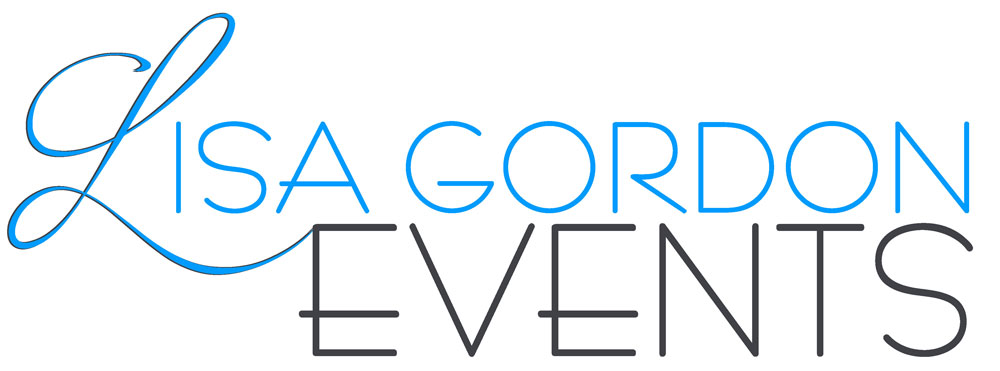









Recent Comments